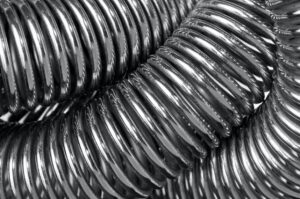 Springs are elastic objects that store mechanical energy vital to the operation of numerous devices, equipment, and machinery found in every household, office, and industry around the globe. In this regard, spring manufacturing is instrumental in the production of goods worldwide. The process provides the essential components for the manufacture of products that are mechanical in nature.
Springs are elastic objects that store mechanical energy vital to the operation of numerous devices, equipment, and machinery found in every household, office, and industry around the globe. In this regard, spring manufacturing is instrumental in the production of goods worldwide. The process provides the essential components for the manufacture of products that are mechanical in nature.
There are several types of springs, with the most common consisting of wire wound into a helical or coil shape. These are the familiar compression springs, extension springs, and torsion springs found in a variety of applications and products of every conceivable size and form.
Though coiled springs are made with a variety of materials ranging from various alloys to plastics, they are most often produced from hardened spring steel. Hardening can be done before spring formation or after formation, with cold wire or heated. Cold wire spring formation is used with thinner material, whereas heated wire formation, which requires increased flexibility to form, is used with thicker materials. The distinctive coiled springs that produce compression springs, extension springs, and torsion springs are made from wire or bar stock that is formed into a helical shape. Depending on the size of the run, long wire stock is either fed through an automated spring coiler or, in smaller runs, wire stock can be coiled by machinists on a lathe.
Large-scale spring manufacturing employs a spring coiler, or CNC spring coiler, to meet high volume production requirements. CNC spring coilers are efficient mechanical spring making machines that give spring wire its coiled shape. The machines can be adjusted to alter the coil tension, length, and number, and programmed to form compression springs, extensions spring or torsion springs. The spring coiler feeds wire into a set of rollers that pull the spring wire through headers or wire guides to make contact with a coiling point. There, the wire quickly spins around a cylinder. The rapid spinning action forces the wire to adapt into a coiled helical shape. Once the helical shape is formed, the spring coiler ejects the spring and repeats the process until the order is fulfilled.
Following coiling and hardening, spring material is peened by a machine for strengthening to prevent metal fatigue and cracking. Springs then must be set to specification to function as designed and to ensure stability during application. The final step in processing involves coating the spring material through passivation, zinc or chromium plating, or liquid adhesives like rubber.
With today’s coiling technologies and an abundance of spring materials, custom wire forming can meet the most challenging application requirements. Custom springs, as the name suggests, are designed to meet customized applications that cannot be satisfied by the properties found in standard manufactured springs. Customized spring formation is designed to certain physical dimensions and specifications with the necessary mechanical properties such as tensile strength, elasticity, ductility, hardenability, malleability, and so on. Custom springs can be manufactured to hold corrosion resistant properties to chemicals, moisture or high humidity, and for applications that must perform in high-temperature ranges or harsh environmental conditions.
Selecting the correct material is important in wire forming for custom springs. Steel alloys are by far the most commonly used spring materials. These include alloys like high-carbon music wire (used for guitar strings, e.g.), oil-tempered low-carbon, chrome silicon, chrome vanadium, and stainless steel. Metals such as beryllium copper alloy, phosphor bronze, and titanium are used for custom applications, too. Ceramic material for high-temperature applications is also used for coiled springs as well as urethane and glass fiber composite materials.
Spring manufacturing not only plays an important role in today’s economy, but the production of springs remains vital to the proper functioning of numerous mechanical devices and products. The spring manufacturing process allows for flexibility and versatility of spring design and function, whether for advanced commercial or heavy industrial applications or for ordinary everyday products.
James Spring Can Help Solve Your Spring Manufacturing Needs
Our Tool & Die Shop can handcraft prototypes to verify that your product design meets your requirements prior to fabricating the final tooling.
For technical guidance, our Sales Engineers are a valuable resource for helping you with product specifications and the manufacturing method that will assure the highest quality at the lowest cost. Contact us today!

